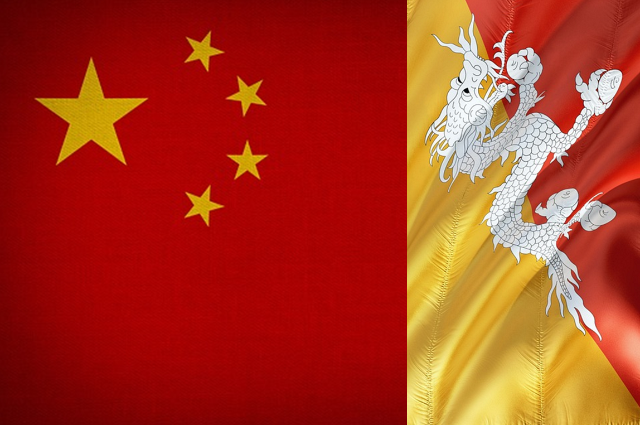
Recently, the visit of Bhutan's Foreign Minister Tandi Dorji to China was unexpected on several levels.
Largely because Bhutan and China do not maintain diplomatic relations.
His visit to China is the first ever by a Bhutanese Foreign Minister.
Moreover, the purpose of the meeting was the settlement of 'boundary talks' that had not taken place in the last seven years since 2016.
The meeting seemed to have yielded substantial progress as both the countries issued a joint statement signing a cooperation agreement for the delimitation and demarcation of the boundary.
In the talks of the Chinese and Bhutanese Foreign Minister, both sides were expected to establish diplomatic relations soon.
India here is quite worried owing to the prospect that it holds a special relationship with Bhutan. Although, the Bhutanese Prime Minister assures that an agreement with China is in no way going to go against the interests of India.
Bhutan, traditionally a close ally of India, lacked diplomatic relations with the permanent members of the United Nations Security Council.
Of China's 14 land neighbors, Bhutan and India are the only two countries that have not yet resolved their border disputes.
Both countries are now pushing for the development of bilateral ties.
The Institute for International Studies in Shanghai said that a fresh consensus on the unresolved border issues, marking an important breakthrough.
It is important to note that this fresh series of talks shall succeed or will go to waste just like the Sino-Bhutanese talks in 1996.
Talks were suspended after the Doklam border crisis in 2017. Doklam is strategically important because of its proximity to Siliguri Corridor which connects India's northeastern states with the rest of the country.
It seems unlikely though that Bhutan would act without having support for its plans from India. It can be quite understood well that Chinese efforts to draw Bhutan have always been to target India.
The warming of Chinese-Bhutan ties is a 'severe strategic setback' to India's internal security challenges.
It's quite a double stance on China's part when it's highly persuasive to resolve its boundary disputes with Bhutan at the same time it's only an onlooker when it comes to those very same negotiations with India. This has certainly complicated the geopolitics around the Himalayan region.
Reference:-
• thehindu.com
• scmp.com
